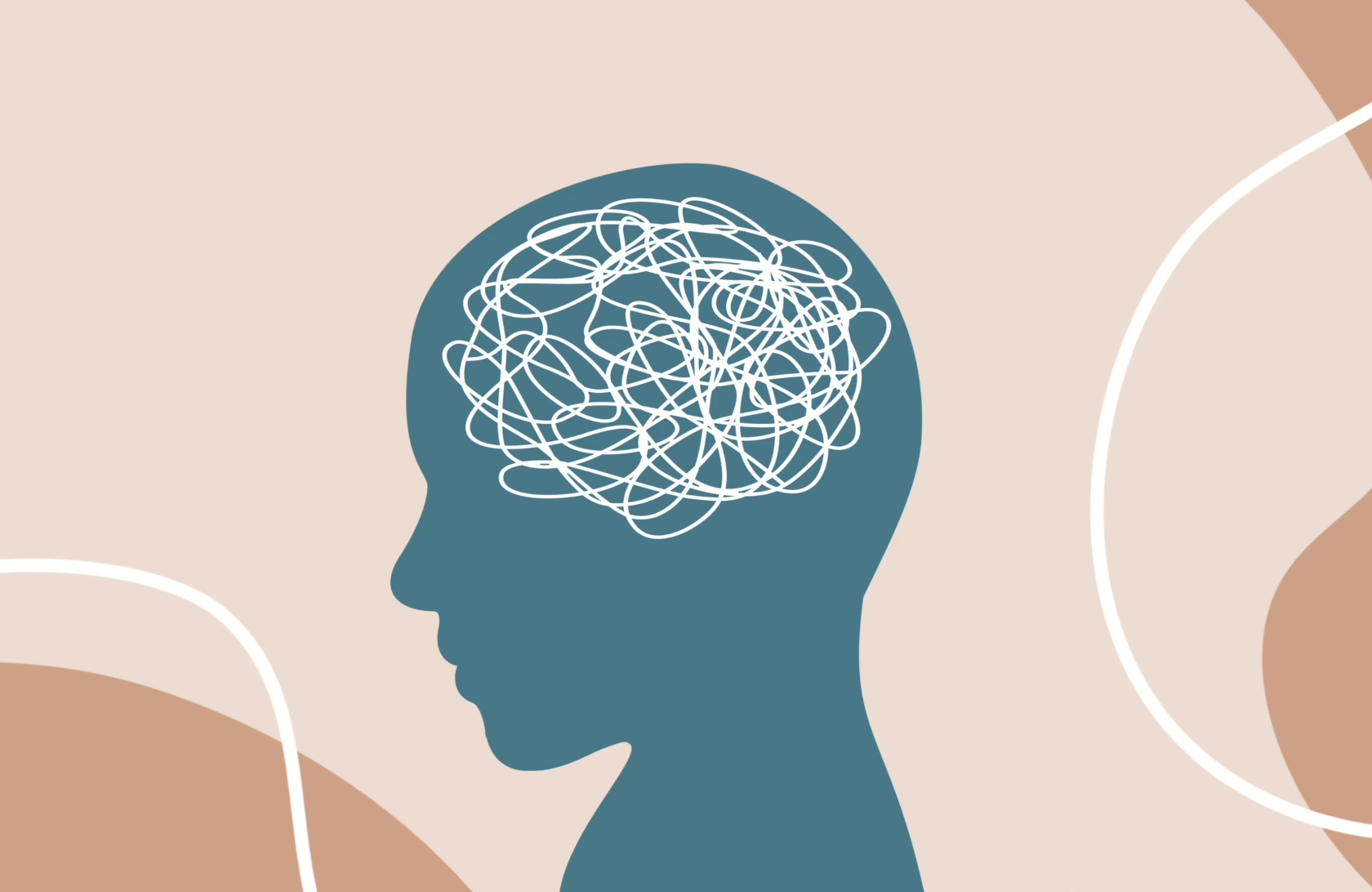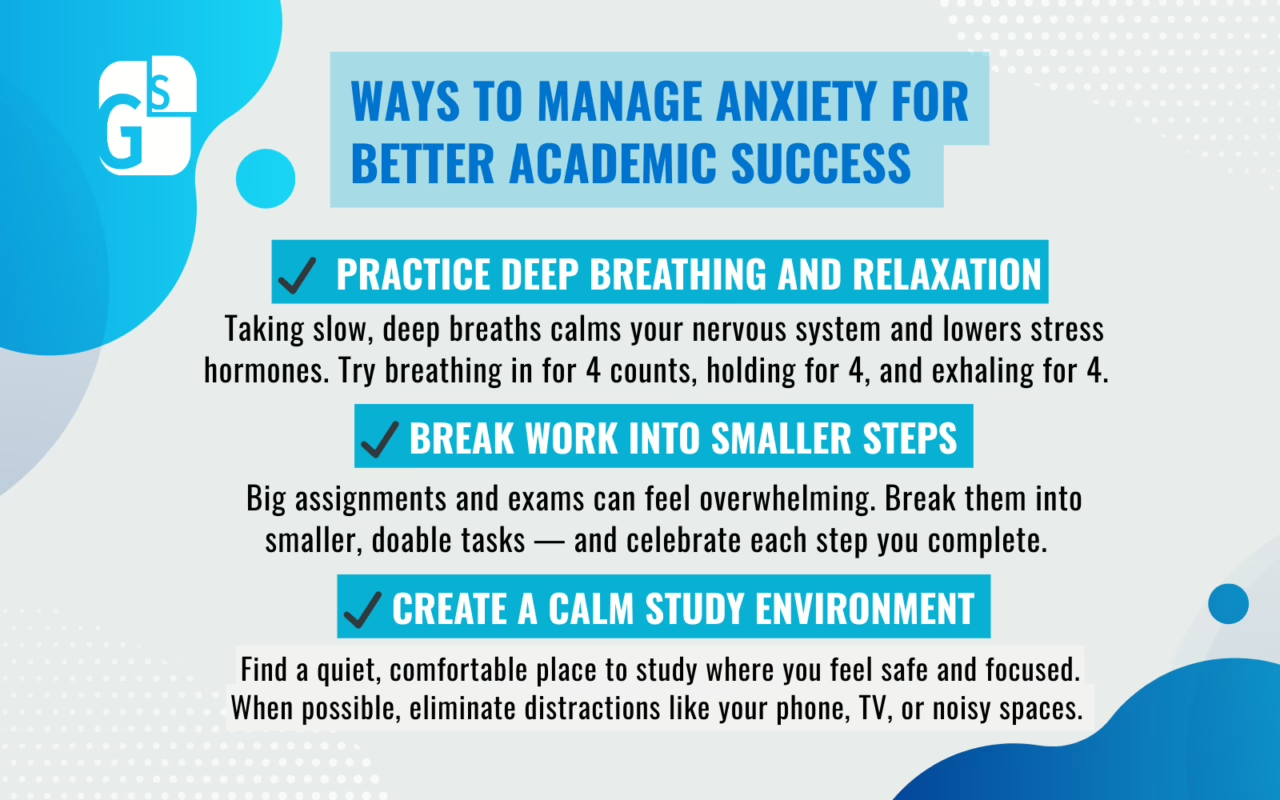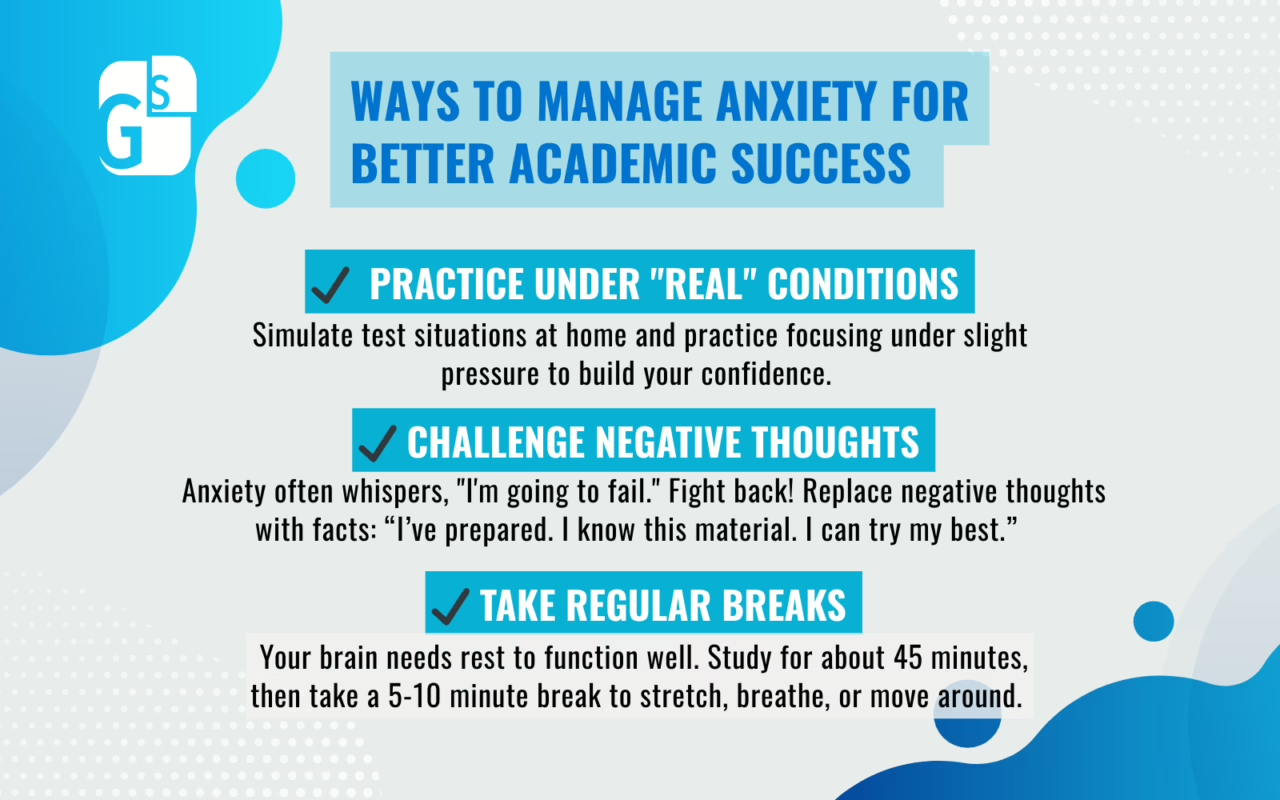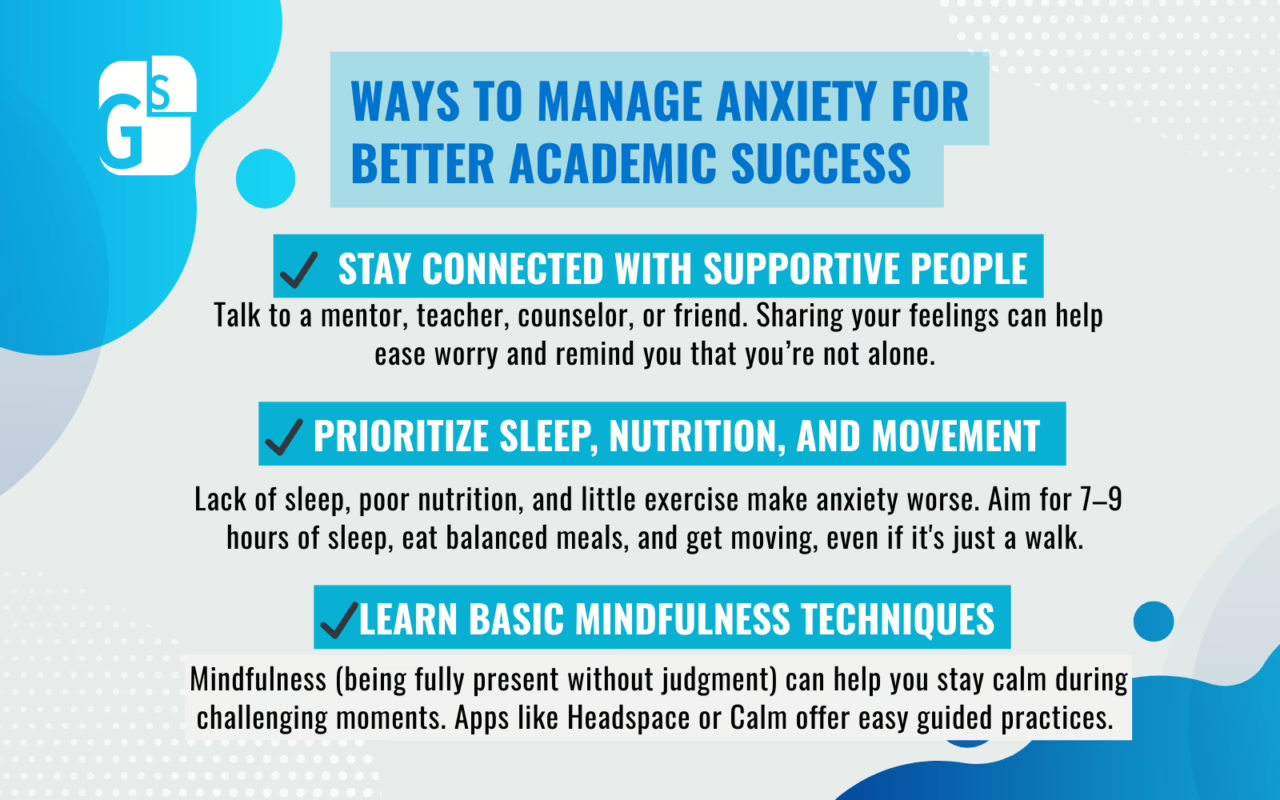Online School
The Brain on Anxiety: How Worry Impacts Test Performance and Why It Matters

Read time: 5 minutes
Imagine walking into a test you studied hard for — but suddenly your mind goes blank, your heart races, and even simple questions seem impossible.
That’s anxiety at work.
Anxiety isn’t just “being nervous.” It’s a real biological response that can directly affect your ability to learn, remember, and perform. Understanding how anxiety impacts the brain can help students (and those who support them) find better strategies to succeed.
What Happens in the Brain During Anxiety?
When you feel anxious, your brain activates its fight-or-flight response — the same system designed to protect you from danger.
Here’s what happens step-by-step:
- The amygdala, the brain’s fear center, sends an alarm signal.
- Stress hormones like cortisol flood your system, preparing you to react quickly — but not necessarily to think clearly.
- The prefrontal cortex, which handles decision-making, problem-solving, and focus, gets overpowered by emotional signals.
- Memory retrieval and logical thinking are disrupted — just when you need them most during a test.
In short: Anxiety hijacks your brain, making it harder to access the knowledge and skills you already have.
How Anxiety Impacts Test Performance
Research shows that test anxiety can lower academic performance even when students are fully prepared. A study in the Journal of Experimental Psychology found that students under stress performed worse on working memory tasks, which are crucial during tests.
Students who experience high anxiety may second-guess themselves, rush through questions, or freeze entirely — behaviors that don’t reflect their actual abilities. Over time, repeated anxiety can lead to the feeling that no matter how hard you try, you’ll fail — which discourages persistence and effort.
When people minimize anxiety by saying things like “just relax” or “don’t worry,” they miss an important point: anxiety isn’t a choice. It’s a neurochemical process. Fortunately, because it’s a biological reaction, there are real strategies that can rewire how the brain responds over time.
Ways to Manage Anxiety for Better Academic Success
Here’s the good news: students can learn techniques to calm the brain and perform better under pressure.
1. Practice Deep Breathing and Relaxation
Taking slow, deep breaths calms your nervous system and lowers stress hormones. Try breathing in for 4 counts, holding for 4, and exhaling for 4.
2. Break Work into Smaller Steps
Big assignments and exams can feel overwhelming. Break them into smaller, doable tasks — and celebrate each step you complete.
3. Create a Calm Study Environment
Find a quiet, comfortable place to study where you feel safe and focused. When possible, eliminate distractions like your phone, TV, or noisy spaces.

4. Practice Under “Real” Conditions
Simulate test situations at home. Set a timer, work without notes, and practice focusing under slight pressure to build your confidence.
5. Challenge Negative Thoughts
Anxiety often whispers, “I’m going to fail.” Fight back! Replace negative thoughts with facts: “I’ve prepared. I know this material. I can try my best.”
6. Take Regular Breaks
Your brain needs rest to function well. Study for about 45 minutes, then take a 5-10 minute break to stretch, breathe, or move around.

7. Stay Connected with Supportive People
Talk to a mentor, teacher, counselor, or friend. Sharing your feelings can help ease worry and remind you that you’re not alone.
8. Prioritize Sleep, Nutrition, and Movement
Lack of sleep, poor nutrition, and little exercise make anxiety worse. Aim for 7–9 hours of sleep, eat balanced meals, and get moving, even if it’s just a walk.
9. Learn Basic Mindfulness Techniques
Mindfulness (being fully present without judgment) can help you stay calm during challenging moments. Apps like Headspace or Calm offer easy guided practices.

10. Ask for Help Early
If you’re struggling, don’t wait until it feels overwhelming. Grad Solutions mentors and staff are here to support you before stress piles up.
Grad Solutions is Built for Students Managing Anxiety
At Grad Solutions, we understand that a traditional classroom isn’t the right fit for everyone — especially for students who have faced anxiety or test challenges in the past. That’s why we offer a flexible, online learning environment designed to remove the barriers that often cause stress in the first place.
Our self-paced courses allow students to move at the speed that works best for them. There’s no pressure to race against a clock or compete with classmates. If you need to slow down, review material, or take a break to regroup, you can — without falling behind or feeling judged.
In a virtual setting, students have more control over their surroundings. For many, learning from the comfort of home or a quiet space dramatically lowers anxiety levels. Without the distractions or social pressures of a busy classroom, students can focus better, think more clearly, and build true confidence in their abilities.
Even better, Grad Solutions doesn’t just provide flexibility — we pair it with personalized mentorship and emotional support. Our mentors understand the realities of test anxiety, self-doubt, and academic trauma. They work closely with students to develop strategies that build resilience, reduce stress, and celebrate every win.
The Future Can Be Different
If anxiety has held you back in the past, it doesn’t have to define your future. With Grad Solutions, you’ll find a program — and a community — built around helping you succeed on your terms. We know that overcoming anxiety takes more than willpower — it takes real support.
At Grad Solutions, our mentors, flexible learning options, and mental health resources are designed to meet students where they are, both academically and emotionally. You’re not broken. You’re capable, and with the right support, you can succeed.

How to Get Started
Ready to finish high school? It’s easy to get started with Grad Solutions. Connect with us to find out more. With free tutoring, mentoring, and many helpful resources, you’ll be on your way to earning your high school diploma!
Sources
- Harvard Health Publishing (2020). Understanding the Stress Response.
- Beilock, S.L., & Ramirez, G. (2011). The Science of Learning: How Stress Affects Working Memory and Test Performance. Journal of Experimental Psychology.
- Mayo Clinic (2022). Stress Management.
- American Psychological Association (2021). Anxiety and Anxiety Disorders.